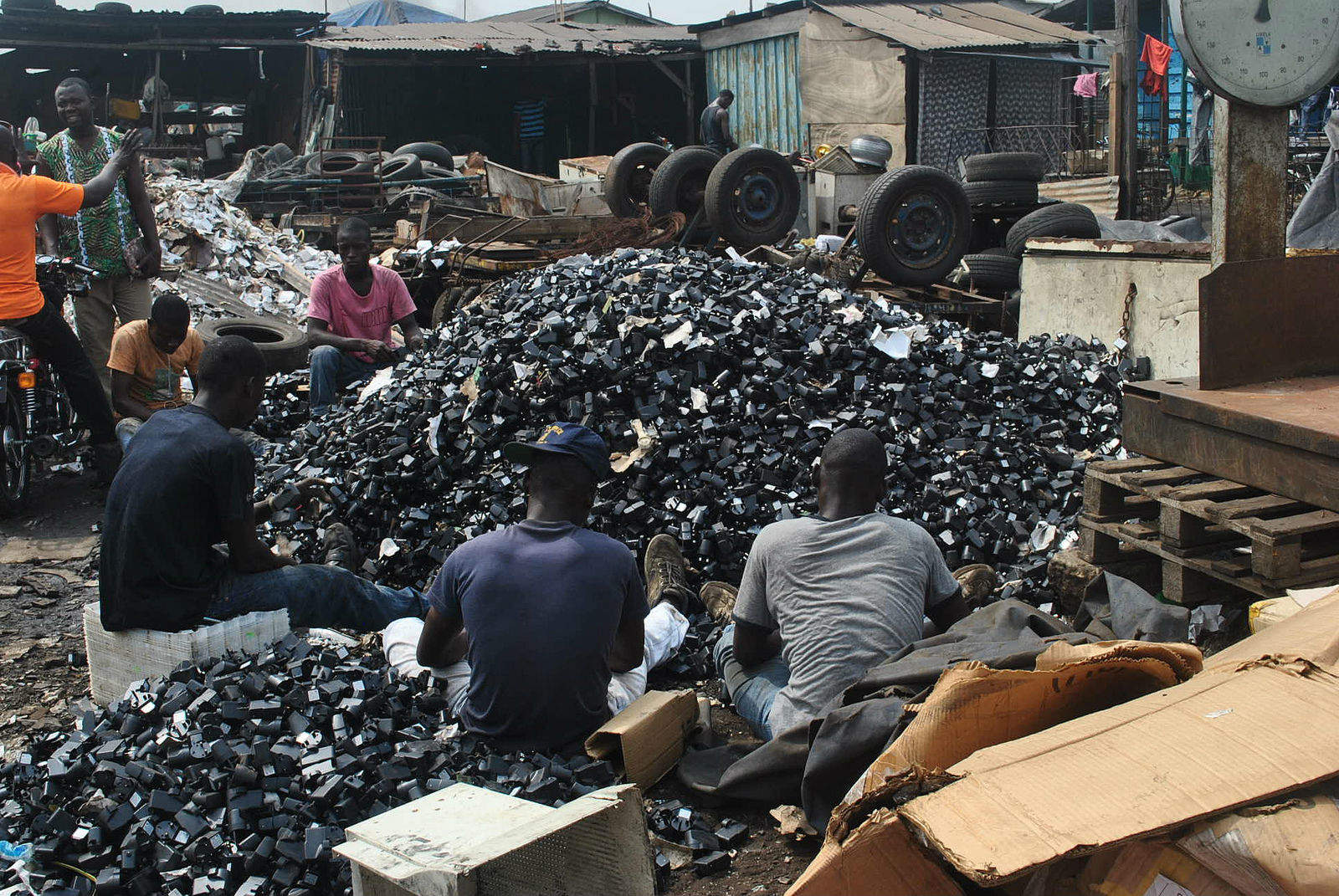RACE CLIMATE CAPITAL
This academic blog uses case studies from disparate localities to demonstrate how "race" as a historical device for marking and governing difference figures in this era of Anthropogenic climate change.
Contributing Authors:
Sathya De Grande, Mehdi Firouzi, Mary Hogan, Caroline De Ridder, Sheila Tahir, Jana Vanderkelen, Donal O’Regan, Qi Gaofeng, Keesha Orts, Lydia Karazarifi, Andrey Smolyakov
Sathya De Grande, Mehdi Firouzi, Mary Hogan, Caroline De Ridder, Sheila Tahir, Jana Vanderkelen, Donal O’Regan, Qi Gaofeng, Keesha Orts, Lydia Karazarifi, Andrey Smolyakov
INTRODUCTION
+ KEY CONCEPTS
HISTORICAL EXPOSURE: LOUISIANA
QUEERING TOXICITY
FEMINIST GRASS ROOT PROTEST
+ KEY CONCEPTS
HISTORICAL EXPOSURE: LOUISIANA
QUEERING TOXICITY
FEMINIST GRASS ROOT PROTEST
GLOBAL WASTE TRADE
E-WASTE
ENVIRONMENTAL RACISM IN GHANA
SETTLER COLONIALISM
SECURITY + RESISTANCE
PALESTINE, ISRAEL and ECO-APARTHEID
E-WASTE
ENVIRONMENTAL RACISM IN GHANA
SETTLER COLONIALISM
SECURITY + RESISTANCE
PALESTINE, ISRAEL and ECO-APARTHEID



INTRODUCTION
by Sathya + Caroline
Imagine this: a climate disaster happens, a whole community is severely affected as their entire village has been flooded. Dramatic, as these climate disasters are often irreversible. Different forms of disasters happen to different communities worldwide on a daily basis, but how coincidental are these events and how arbitrary are these communities or places of disaster?
As Bonilla (2020) states, a disaster is rarely ever ‘natural’, it is socially produced and is the effect of ongoing processes of structural violence. The circumstances of social and environmental vulnerability of certain communities, isn’t natural but produced by a racio-colonial power (Bonilla, 2020). Above that, the effects of these disasters are sharpened by pre-existing racial, gender and class hierarchies (Bonilla, 2020). If you consider 70% of the CO2-emissions between 1850 and 2016 are the responsibility of industrialized countries (Zack, 2020), we can state that those who are already more likely to suffer from the consequences of climate change, are also the least responsible for the climate change that caused these disasters to happen in the first place (Thomas & Haynes 2020).
Not only are the people most affected from disasters the least responsible, they are also more likely to breathe polluted air, live next to toxic sites and suffer from health issues (Zack, 2020 and Yeampierre, 2020). Yeampierre goes further and says that these people are even more targeted by racial violence. Research shows that polluters select places for their activities with a high percentage of black people, so race is more likely to get touched by pollutants than poverty (Thomas & Haynes 2020). Also because racism is related to the availability of housing and access to government support, Black individuals are less equipped to withstand disasters (Zack, 2020).
Globally, climate movements have long failed to understand the link with racial justice (Lakhani & Watts 2020), failed to understand that this link goes back to the time of colonialism, where extreme extraction began, fitting right in with capitalism (Yeampierre, 2020). Climate change is a child of these extractions and actions of destruction, again targeting the same people who were already a victim of colonialism and further structural racism (Yeampierre, 2020). Not only does climate injustice go way back in history, it is also widespread over the world. It is estimated that by 2050 there will be 200 million people forced to migrate due to climate changes (Avijit, Bhaswati, 2020).
So imagine this: a disaster happened and you don’t get security from your own government, nor from other countries. Is that fair? For Nowshin (2020) the only way to create climate justice, is acknowledging that racism and the climate crisis have the same roots. By recognizing their interconnectedness, the fights can intertwine by prioritizing human security and confronting policymakers with environmental racism. ‘Communities of colour’ need to be addressed in all kinds of climate pacts. (Zack, 2020)
(Lakhani & Watts 2020)
“I need you to understand that our inequality crisis is intertwined with the climate crisis. If we don’t work on both, we will succeed at neither.”
Bibiliography:
tags: #race #climate
tags: #race #climate
text about image
Global E-waste Trade, Environmental Injustice and Racial Capitalism
By Lydia Karazarifi
Broken old machines, televisions that are impossible to work, small devices taken apart, cables and the remains of hard drives in a vast area of broken materials. They call them second-hand electronic goods. There are dim fires here and there. Women, men, children, animals go around the place. They work with these materials or even play football in this landscape of smoke and e-waste.
These are some of the images in the visual portrait of David Fedele “E-waste-land” (2012) that takes place in an e-waste dump in Ghana. He depicts life without a lot of words. The images, sounds and movements give an adequate sense of what is going on. Yet, how did these damaged and toxic materials come in places like this, from where and why?
According to Basel Convention (1989) on the Control of Transboundary Movements of Hazardous Wastes and Their Disposal, e-waste that contains hazardous elements may not be exported to developing countries for disposal” (Lubick 2012; Marques 2020). From 2018, “186 states and the European Union are parties to the Convention. However, Haiti and the USA have signed the Convention, but not ratified it. Refusing to pay for the recycling costs provided in this treaty, corporations discard their e-waste in landfills or export about 80% of it to Asia and Africa” (Marques 2020). Also, it is estimated that annually “at least 250,000 metric tons of e-waste still illegally enters five African countries” (Lubick 2012), including Nigeria and Ghana among other countries. According to many bibliographic sources, it is difficult to control the export of these e-waste products because of their quantity and status as ‘second hand’ goods. Apart from this, in some cases, people in the countries of e-waste destination support their livelihoods because of the income by the advantage of e-waste. Yet, Charles W. Schmidt (2006) notes that only a small per cent of the e-waste materials can be used and get advantaged, which for instance in Nigeria is around 25% and the rest the 75% ends up as rubbish. At the same time, “50m tonnes of e-waste are generated globally each year, with only around 20% of it officially recycled” (Harris 2020).
However, I wonder what is the mentality behind these practices of e-waste global trade and which factors accelerate this global environmental inequality between the Global South and North.
Historically, the roots of capitalism lie on the exploitation of people from Europe’s colonies in the Global South (Burden-Stelly 2020) as well as its natural resources. In this sense, the social constructions of race and racism constitute the preconditions of capitalism. As Ruth Wilson Gilmore (2020) notes “capitalism requires inequality and racism ensures it”. Inequal accesses to environmental rights lead to geographies of racial capitalism often separating the status of life between the Global North and Global South in terms of environmental injustice. Often neoliberal policies of debt and austerity renew the colonial condition of order and global hierarchies and lead to the construction of neo-colonial regimes (Douzinas 2013).
In the case of e-waste, as it is mentioned above, countries with the lowest economic statuses that are known as developing countries, accept the majority of the e-waste characterized by toxic and hazardous materials. This fact underlines the unequal relations and the geographies of racial capitalism that are based on this binary of the exploitation among the geographies and people that are exploitable and the ones that are not.
Apart from this, the goal of capitalistic regimes for eternal growth and profit enhance the environmental injustice, by worsening the problem of e-waste accumulation in this case. More specifically, many big industries and manufacturers have implemented programs such as planned obsolescence that limits the lifespan of the electronic devices to some months or a few years thus to increase the consumption of new and replaceable products (Harris 2020; Guiltinan 2009). The attitudes of enormous consumption have a great impact on the environment and people’s lives in terms of toxicity and acceleration of climate change. Notably, climate change according to Mohai et al (2009) worsens the relations of inequality in terms of environmental justice and the access to a healthy environment.
To conclude, the global e-waste trade is one current and global matter that illustrates the need for ethics and responsibility. Ethics in terms of consumption, marketing and decolonization, and responsibility in terms of action and demand for polices and livelihoods directed to fair environmental conditions. This need becomes more apparent in our time, in which the new technologies and the use of digital mediums become dominant actors in our life and environmental problems become more preoccupying. I choose to end this text with the words of Ruth Wilson Gilmore (2020), hoping for a more fair future in terms of environmental justice and well-being:
“Solidarity and radical dependency is about life and living together and living together in rather beautiful ways”.
Bibiliography:
Burden-Stelly, Charisse (2020) “Modern U.S. Racial Capitalism” in Monthly Review, vol. 72 (3): pp.8-20. DOI: https://doi.org/10.14452/MR-072-03-2020-07_2
Douzinas, Costas (2013) Philosophy and Resistance in the Crisis: Greece and the Future of Europe (1st Edition). Cambridge: Polity Press.
Fedele, David (2012) E-waste-land. Independent Production. URL: http://www.david-fedele.com/E-WASTELAND_files/HOME.html
Gilmore, Ruth Wilson (2020) “Geographies of Racial Capitalism”. An Antipode Foundation Film. URL: https://www.youtube.com/watch?v=2CS627aKrJI
Guiltinan, Joseph (2009) Creative Destruction and Destructive Creations: Environmental Ethics and Planned Obsolescence. Journal of Business Ethics, vol. 89(1): pp. 19-28. Springer. URL: https://www.jstor.org/stable/40295074
Harris, John. Planned obsolescence: the outrage of our electronic waste mountain (Apr 2020) The Guardian. URL: https://www.theguardian.com/technology/2020/apr/15/the-right-to-repair-planned-obsolescence-electronic-waste-mountain
Lubick, Naomi (2012) “Shifting mountains of electronic waste.” Environmental health perspectives, vol. 120 (4): pp. A148-149. DOI:10.1289/ehp.120-a148
Marques, Luis (2020) Capitalism and Environmental Collapse. Springer (eBook). URL: https://doi.org/10.1007/978-3-030-47527-7
Mohai, Paul, Pellow, David, Roberts, J.. (2009). Environmental Justice. Annual Review of Environment and Resources? Vol. 34(1): pp.405-430. DOI: 10.1146/annurev-environ-082508-094348
Schmidt, Charles W. (2006) Unfair Trade e-Waste in Africa. Environmental Health Perspectives, vol. 114(4): pp. A232-A235. URL: https://doi.org/10.1289/ehp.114-a232
tags: #race #climate
Burden-Stelly, Charisse (2020) “Modern U.S. Racial Capitalism” in Monthly Review, vol. 72 (3): pp.8-20. DOI: https://doi.org/10.14452/MR-072-03-2020-07_2
Douzinas, Costas (2013) Philosophy and Resistance in the Crisis: Greece and the Future of Europe (1st Edition). Cambridge: Polity Press.
Fedele, David (2012) E-waste-land. Independent Production. URL: http://www.david-fedele.com/E-WASTELAND_files/HOME.html
Gilmore, Ruth Wilson (2020) “Geographies of Racial Capitalism”. An Antipode Foundation Film. URL: https://www.youtube.com/watch?v=2CS627aKrJI
Guiltinan, Joseph (2009) Creative Destruction and Destructive Creations: Environmental Ethics and Planned Obsolescence. Journal of Business Ethics, vol. 89(1): pp. 19-28. Springer. URL: https://www.jstor.org/stable/40295074
Harris, John. Planned obsolescence: the outrage of our electronic waste mountain (Apr 2020) The Guardian. URL: https://www.theguardian.com/technology/2020/apr/15/the-right-to-repair-planned-obsolescence-electronic-waste-mountain
Lubick, Naomi (2012) “Shifting mountains of electronic waste.” Environmental health perspectives, vol. 120 (4): pp. A148-149. DOI:10.1289/ehp.120-a148
Marques, Luis (2020) Capitalism and Environmental Collapse. Springer (eBook). URL: https://doi.org/10.1007/978-3-030-47527-7
Mohai, Paul, Pellow, David, Roberts, J.. (2009). Environmental Justice. Annual Review of Environment and Resources? Vol. 34(1): pp.405-430. DOI: 10.1146/annurev-environ-082508-094348
Schmidt, Charles W. (2006) Unfair Trade e-Waste in Africa. Environmental Health Perspectives, vol. 114(4): pp. A232-A235. URL: https://doi.org/10.1289/ehp.114-a232
tags: #race #climate


Richard Misrach from the series on Cancer Alley



